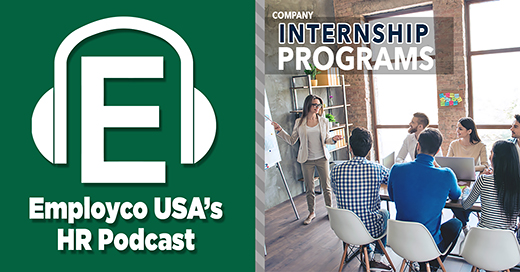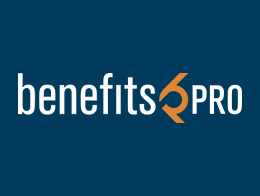H.R. expert explains how companies should approach hiring student interns
With fall approaching and school commencing, many college students will be considering a fall internship. However, companies who are considering hiring student interns need to be careful about how they proceed with this arrangement.
 “Interns can no longer be used as free labor,” says Rob Wilson, human resources expert and President of Employco USA, an employment solutions firm. “It is crucial that the intern can be shown to benefit as much from the arrangement as the company itself.”
“Interns can no longer be used as free labor,” says Rob Wilson, human resources expert and President of Employco USA, an employment solutions firm. “It is crucial that the intern can be shown to benefit as much from the arrangement as the company itself.”
Wilson explains that companies who are considering interns should consider not only how these workers would benefit them, but how the experience itself can benefit the intern. “Students will need to be able to prove that their time with your firm is educational and applicable to their chosen major,” says the H.R. expert.
Furthermore, says Wilson, companies will need to budget for these interns.
“The days of free internships are pretty much over,” says Wilson. “There is a very thin margin of internships where it is still okay for a worker to receive no financial compensation, but we advise all of our clients to pay their interns. It’s a good business practice and one that will be beneficial for you in the long run.”
Wilson also says that hiring interns will bring a fresh perspective and a new outlook to companies.
“When you bring the next generation into your workplace, you are going to enjoy the benefit of their unique outlook and fresh take on issues in your industry,” says Wilson. “Student interns should be a win-win for both you and them, provided you take the needed steps to make sure the program is run effectively and managed well.”
For more on this topic, you can listen to Employco USA’s HR Podcast entitled, “Company Internship Programs.”
Contact us with any questions you may have, we’re here to help: hr@employco.com

 Rob Wilson,
Rob Wilson, The latest jobs report has many people talking about “full employment” and the fact that America is allegedly near this state. However, what does full employment really mean, and is our nation truly almost to this place?
The latest jobs report has many people talking about “full employment” and the fact that America is allegedly near this state. However, what does full employment really mean, and is our nation truly almost to this place? Previous research
Previous research “Ghosting” (when a person ends a relationship with no communication or forewarning) has been a hot-button topic in the dating community for years, but now the word is being used in employment circles to describe a new and troubling trend of job applicants who simply disappear off an employer’s radar.
“Ghosting” (when a person ends a relationship with no communication or forewarning) has been a hot-button topic in the dating community for years, but now the word is being used in employment circles to describe a new and troubling trend of job applicants who simply disappear off an employer’s radar.
 Summer jobs among kids ages 16-19
Summer jobs among kids ages 16-19  Employee turnover can be very costly, yet employee retention rates have been decreasing in recent years. In fact, one recent study found that one-third of employers expect to lose employees this year. So, what can companies do to better retain their top talent?
Employee turnover can be very costly, yet employee retention rates have been decreasing in recent years. In fact, one recent study found that one-third of employers expect to lose employees this year. So, what can companies do to better retain their top talent? Several cities and states have banned the infamous “salary history” question from the interview process, including California, Delaware, Massachusetts, New York City, New Orleans, and many more. But, why is this question being banned, and what do employers need to know in order to protect themselves?
Several cities and states have banned the infamous “salary history” question from the interview process, including California, Delaware, Massachusetts, New York City, New Orleans, and many more. But, why is this question being banned, and what do employers need to know in order to protect themselves? Research shows that students
Research shows that students